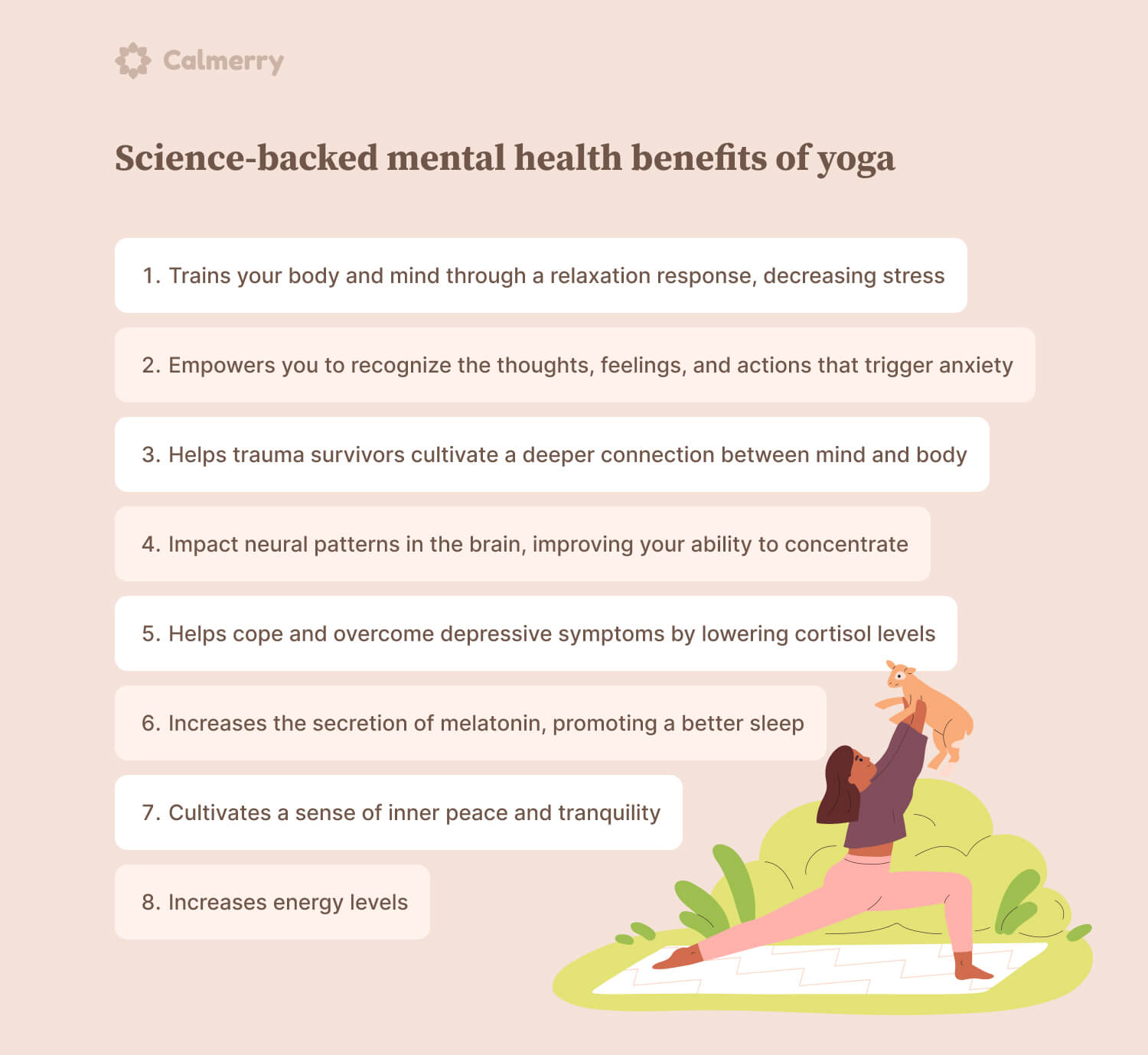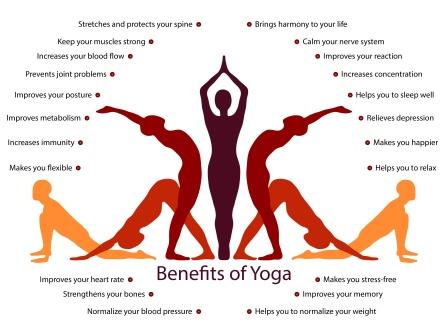
Introduction to Yoga
Yoga is not just a form of exercise; it is a holistic practice that encompasses the mind, body, and soul. Understanding the essence and background of yoga is essential to fully appreciate its profound impact on overall well-being.
What is Yoga?
Yoga, derived from the Sanskrit word “Yuj,” means to unite or yoke. It is a discipline that integrates physical postures, breathing techniques, meditation, and ethical principles to promote harmony within oneself. Yoga aims to create a balance between the body, mind, and spirit, fostering a sense of inner peace and well-being. Key points on yoga include: – Mind-Body Connection: Yoga emphasizes the connection between physical movements and mental state, encouraging practitioners to be present in the moment. – Breath Awareness: Central to yoga is the focus on breath control, using specific breathing patterns to enhance physical and mental relaxation. – Spiritual Growth: While yoga has roots in spirituality, it is also widely practiced for its physical and mental health benefits.
History and Origins of Yoga
The history of yoga dates back thousands of years, originating in ancient India. It is believed to have been developed as a means to cultivate self-awareness, inner peace, and spiritual enlightenment. Yoga was first documented in ancient texts such as the Vedas and Upanishads, highlighting its significance in Indian philosophy and culture. Key highlights of yoga’s history include: – Ancient Beginnings: Yoga traces its origins to the Indus Valley Civilization around 3000 BCE, evolving over centuries through various schools and traditions. – Yogic Texts: The philosophical principles and practices of yoga were codified in texts like the Yoga Sutras of Patanjali and the Hatha Yoga Pradipika. – Global Influence: In modern times, yoga has gained immense popularity worldwide, with diverse styles and approaches catering to different individual needs. Understanding the essence and evolution of yoga sets the foundation for exploring its myriad physical, mental, and emotional benefits.
Physical Benefits of Yoga
After delving into the origins and essence of yoga, it is vital to explore the tangible physical enhancements that this ancient practice offers. From increased flexibility to improved metabolism, yoga’s impact on physical well-being is truly transformative.
Improved Flexibility and Strength
One of the most noticeable physical benefits of yoga is the remarkable improvement in flexibility and strength that practitioners experience. Through a combination of stretching poses and muscle engagement, yoga gradually enhances the body’s range of motion and muscular endurance. Key benefits of improved flexibility and strength include: – Enhanced Mobility: Yoga postures target different muscle groups, promoting increased flexibility and mobility in joints and muscles. – Muscle Tone: Regular practice of yoga poses like downward dog and plank strengthens muscles, leading to improved muscle tone and definition. – Injury Prevention: Greater flexibility and strength help reduce the risk of injuries during physical activities and everyday tasks.
Weight Management and Metabolism Boost
Incorporating yoga into your fitness routine can be a game-changer when it comes to weight management and metabolic health. The dynamic movements and mindfulness elements of yoga contribute to a balanced approach to maintaining a healthy weight and boosting metabolism. Key highlights of weight management and metabolism benefits from yoga: – Calorie Burn: Certain styles of yoga, such as Vinyasa and Power Yoga, involve active sequences that elevate heart rate and burn calories effectively. – Stress Reduction: By reducing stress levels, yoga helps regulate cortisol production, a hormone that can contribute to weight gain and metabolic imbalances. – Improved Digestion: Specific yoga poses, like twists and forward bends, massage internal organs and support digestion, aiding in weight management. The combination of physical strength, flexibility, and metabolic health improvements through yoga illustrates its multifaceted impact on enhancing physical well-being.

Mental Health Benefits of Yoga
As we continue our exploration of the wonders of yoga, it is crucial to delve into the profound effects it has on mental well-being. Beyond the physical realm, yoga offers a sanctuary for the mind, nurturing emotional balance, mental clarity, and inner peace.
Stress Reduction and Relaxation
One of the primary mental health benefits of yoga is its unparalleled ability to alleviate stress and promote deep relaxation. Through mindful breathing techniques and meditative practices, yoga facilitates a sense of calmness and tranquility, counteracting the hectic pace of modern life. Key points on stress reduction and relaxation with yoga include: – Cortisol Regulation: Yoga practice helps regulate the body’s stress hormone cortisol, reducing overall stress levels and promoting a state of relaxation. – Mindfulness Practice: By encouraging present-moment awareness, yoga cultivates mindfulness, allowing individuals to let go of worries and focus on the now. – Restorative Poses: Restorative yoga poses, such as Savasana and Child’s Pose, promote deep relaxation and release tension from the body and mind.
Enhanced Mental Focus and Clarity
Yoga serves as a powerful tool for enhancing mental focus, concentration, and cognitive clarity. The combination of physical movement, breath work, and meditation sharpens the mind, boosts cognitive function, and fosters a sense of mental alertness. Key highlights of yoga’s impact on mental focus and clarity include: – Brain Function: Yoga has been shown to improve brain function, memory retention, and cognitive abilities through sustained focus and attention practices. – Emotional Regulation: By promoting emotional balance and self-awareness, yoga equips individuals with the tools to navigate challenging emotions and maintain mental clarity. – Stress Management: Enhanced mental focus from yoga enables individuals to approach stressful situations with a calmer perspective, making sound decisions and reducing mental clutter. The profound effects of yoga on stress reduction, relaxation, mental focus, and cognitive clarity underscore its pivotal role in supporting holistic mental well-being.

Emotional Well-being from Yoga
Transitioning from the mental to the emotional realm, yoga offers a profound sanctuary for nurturing emotional health and well-being. Through the practice of mindfulness, self-awareness, and emotional regulation, yoga provides a pathway to cultivate a more balanced and resilient emotional state.
Increased Mindfulness and Self-awareness
Central to the emotional benefits of yoga is the cultivation of mindfulness and self-awareness. By tuning into the present moment, acknowledging emotions without judgment, and developing a deeper understanding of oneself, individuals can enhance their capacity for emotional intelligence and self-discovery. Key points on increased mindfulness and self-awareness through yoga include: – Present Moment Awareness: Yoga encourages individuals to be fully present in each moment, fostering a deeper connection with their thoughts, feelings, and sensations. – Self-reflection: Through introspective practices like meditation and self-inquiry, yoga enables individuals to explore their inner world, identify patterns, and cultivate self-awareness. – Emotional Resilience: By developing mindfulness and self-awareness, individuals gain the tools to navigate challenging emotions, respond thoughtfully to triggers, and cultivate emotional resilience.
Better Emotional Regulation and Resilience
Yoga serves as a powerful ally in promoting effective emotional regulation and resilience. By integrating breath work, physical postures, and relaxation techniques, yoga empowers individuals to manage their emotions, reduce reactivity, and build inner strength to weather life’s ups and downs. Key highlights of enhanced emotional regulation and resilience through yoga include: – Stress Management: Yoga equips individuals with coping strategies to manage stress, anxiety, and overwhelm, fostering emotional balance and well-being. – Empathy and Compassion: Through yoga’s emphasis on self-love and compassion, individuals develop greater empathy towards themselves and others, enhancing emotional connections and relationships. – Emotional Release: Yoga facilitates the release of stored emotions and tensions, providing a safe space for emotional processing and healing. The transformative effects of yoga on emotional well-being, including increased mindfulness, self-awareness, emotional regulation, and resilience, underscore its role as a holistic practice that nurtures and strengthens the emotional aspect of our selves.

Other Health Benefits of Yoga
As we continue to unravel the myriad benefits of yoga, it is essential to explore its broader impact on overall health beyond the realms of mental and emotional well-being. From enhancing posture and balance to improving respiratory and cardiovascular health, yoga offers a comprehensive approach to nurturing the body and mind.
Better Posture and Balance
Yoga is renowned for its ability to enhance posture and balance through a series of physical postures and alignment-focused practices. By strengthening the core muscles, improving body awareness, and correcting alignment, yoga helps individuals achieve better posture and stability in everyday movements. Key benefits of better posture and balance through yoga include: – Core Strength: Yoga poses like Tree Pose and Warrior III target the core muscles, improving strength and stability to support proper posture. – Body Alignment: Yoga teaches individuals to align their body properly during poses, promoting spinal health and reducing strain on muscles and joints. – Balance Improvement: Balancing poses in yoga challenge coordination and proprioception, enhancing balance and reducing the risk of falls.
Improved Respiratory and Cardiovascular Health
Yoga’s focus on breath work and mindful breathing techniques not only calms the mind but also significantly improves respiratory and cardiovascular health. By encouraging conscious breathing, expanding lung capacity, and promoting heart health, yoga optimizes the body’s vital systems. Key highlights of improved respiratory and cardiovascular health through yoga include: – Lung Function: Yoga incorporates deep breathing exercises like Pranayama, enhancing lung function, increasing oxygen intake, and boosting respiratory efficiency. – Heart Health: Certain yoga styles, such as Ashtanga and Power Yoga, involve dynamic sequences that elevate heart rate, supporting cardiovascular health and circulation. – Stress Reduction: By regulating breathing patterns, yoga reduces stress levels, blood pressure, and heart rate, contributing to overall cardiovascular well-being. The holistic approach of yoga extends to improving posture, balance, respiratory health, and cardiovascular function, highlighting its versatility in promoting overall physical vitality and well-being.
Conclusion
In conclusion, the transformative power of yoga transcends mere physical exercise, offering a holistic approach to overall health and well-being. From mental clarity to emotional resilience and physical vitality, yoga serves as a profound practice that nurtures the mind, body, and spirit in harmony.
Overall Impact of Yoga on Holistic Health
The all-encompassing benefits of yoga on holistic health are undeniable, with each aspect of well-being interwoven to create a tapestry of healing and growth. By integrating physical postures, breath awareness, meditation, and mindfulness, yoga cultivates a balanced state of being that resonates throughout every facet of life. Key points on the overall impact of yoga on holistic health include: – Mind-Body Connection: Yoga bridges the gap between the physical and mental realms, fostering a harmonious relationship between body and mind. – Emotional Balance: Through self-awareness and emotional regulation, yoga empowers individuals to navigate life’s challenges with grace and resilience. – Physical Vitality: Improved flexibility, strength, posture, and cardiovascular health contribute to enhanced physical well-being and vitality.
Encouragement to Incorporate Yoga into Daily Routine
As we reflect on the profound benefits of yoga, the invitation to incorporate this ancient practice into our daily lives becomes a compelling opportunity for growth and self-care. Regardless of one’s age, fitness level, or experience, yoga offers a welcoming space for self-exploration, healing, and transformation. Key tips for incorporating yoga into your daily routine include: – Start Small: Begin with a short daily practice, setting aside even just a few minutes for gentle stretching, breathing exercises, or meditation. – Explore Different Styles: Experiment with various yoga styles and classes to find what resonates with you, whether it’s a vigorous Vinyasa flow or a soothing Yin practice. – Consistency is Key: Cultivate a consistent yoga practice by carving out dedicated time each day, prioritizing your well-being and self-care. In embracing the holistic benefits of yoga and weaving its principles into our daily routines, we embark on a journey towards greater self-awareness, balance, and well-being. Let yoga be not just a practice but a way of life that nurtures and nourishes our mind, body, and spirit.

